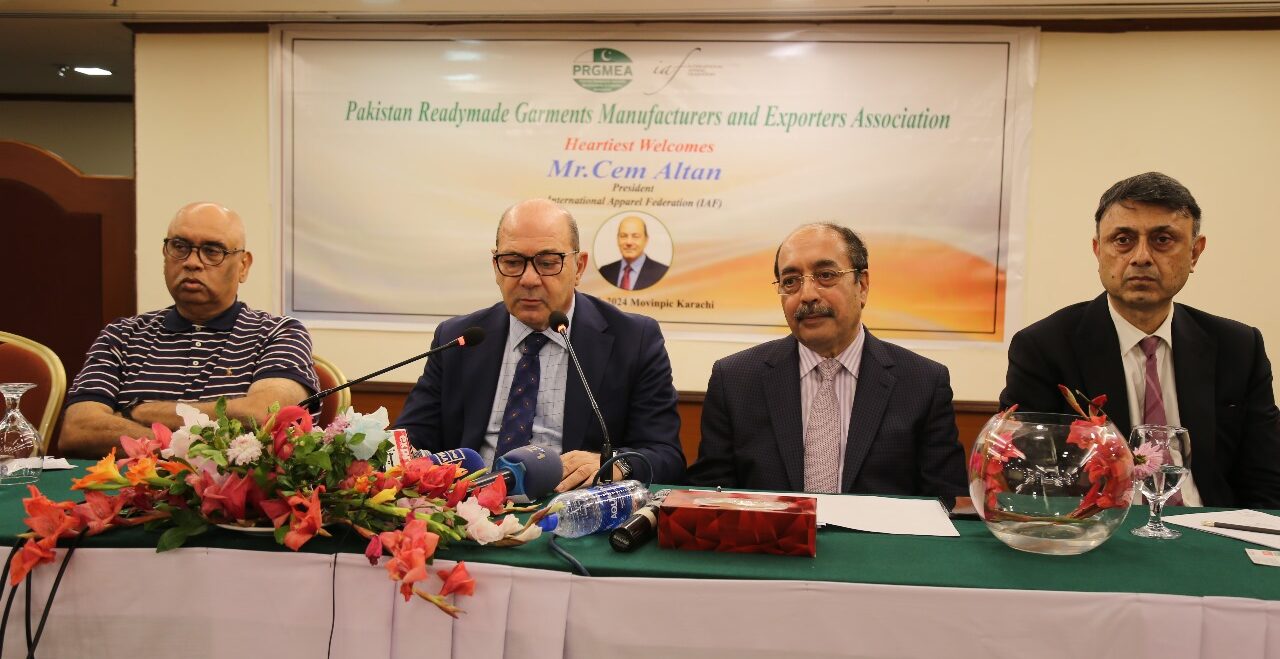Today Pakistan has a lower tax-to-GDP ratio as compared to regional and other countries, which is causing serious disparity between various sectors of the economy. All the segments of the society are not contributing their due share of tax on their income in accordance with their contribution in GDP. For example industrial sector contributes 20.3 percent in GDP and 67 percent in Tax payment whereas agriculture sector has a significant contribution of 18.5 percent in GDP with negligible (1 percent) contribution in the tax payment.
For broadening the tax base and to improve tax to GDP ratios the FPCCI budgetary documents suggests that all the persons/authorities like Registrars, Co-Operative Housing Societies responsible for allocation/registration/transfer of immovable properties (industrial, commercial, residential & agricultural), motor vehicles registration authorities, clubs (private & public), credit card issuing authorities, Central Depository Company Limited, National Clearing Company of Pakistan, large scale private hospitals, educational institutions, electricity distribution companies granting commercial and industrial electricity connections, marriage halls/hotels providing catering services at all types of events, financial institutions distributing profits/interest on investments, (including national saving schemes), mutual funds, immigration officer for international travel etc. should contribute to the economic development of Pakistan and share in taxes.
Effective enforcement should be ensured for compliance of filing of Return of Income under section 114 of the Ordinance, 2001.Presently the share of tax collected by the provinces in comparison to their contribution to GDP is very low even after the 18th Amendment in Pakistan’s Constitution.
The Federal Government of Pakistan as such is required to help and assist provincial governments to strengthen their tax collection mechanism. In case a provincial government does not have proper infrastructure to collect provincial taxes then the Federal Government may be authorized to collect tax on its behalf. The Federal Government should also ensure that all provinces are collecting due tax on agriculture income.
In Pakistan the corporate tax rate in FY2020 is 29 percent which due to multiplicity of taxes (2 percent Workers’ Welfare Fund + 5 percent Workers’ Participation Fund) goes upto 36 percent. The average tax rate in Asia was 21.32 percent in 2019. The high rate of tax is encouraging tax evasion and corruption and is discouraging documentation of economy, corporatization. It is also a disincentive for foreign and local investment. Withholding tax regime should be simplified by reducing the categories of withholding taxes and the rates thereon.
Further, the withholding agent should be facilitated through robust IRIS wherein the visibility of tax deduction certificate should be given to the tax payer instead of relying on the withholding certificates. Withholding agents should be given incentive in the form of tax credit for facilitating the Government in identifying potential tax evaders and withholding/collecting taxes. Rate of Tax for Small and Medium Enterprises (SMEs) should be reduced to 20 percent to encourage SMEs ccompanies.
The tax rate on rental income has now been gradually increased from 20 percent to 35 percent for individuals and AOPs vide the Finance Act, 2019. Apart from that the lessor is also required to pay Sindh Sales Tax @ 3 percent to SRB, which makes the total tax impact very unfair and exorbitant and lead towards un-documented business. Resultantly the rents of warehouses have also been increased exorbitantly and the exporters who warehoused their exportable goods are financially hurt. The rental income from property, AOP or individual and company be taxed at a uniform rate of 15 percent of the Gross Rent as full and final discharge of tax liability. Rental income taxable under Normal Tax Regime should be allowed to be adjusted against business loss.
The restriction imposed through Finance Act, 2013 needs to be reconsidered. The tax credit under Section 65E may be extended to factory building and manufacturing related infrastructure also.
Keeping in view the COVID-19 crises that would increase global demand of food security as well as domestic demand the agriculture sector shall be promoted to ensure availability of raw materials for the establishment of Agro-based industry in rural areas and arrest increasing trend of urbanization. Promotion of Corporate Agriculture Farming to improve efficiency in the system, bring more investment, technology and jobs and ultimately increase both the revenue and exports. In order to reduced dependence on traditional exports; shift in the composition of exports baskets that is encouraging exports of high/ medium technology products.
- Either Zero rated be allowed on all inputs of 5 export oriented sectors or refunds claims be paid within the stipulated time period
- The exports be allowed 50 percent air freight subsidy from EDF
- Removal of non-tariff barriers restraining the volume of Pakistan’s exports to China and EU
- Subsidized credit for exporters
- Rationalization in imports tariff rates on the basis of cascading and allowing effective protection rate to local industries
- import substitution
Brand development and special incentive package should be provided for those exporters engaged in marketing for their own “Brand” international market. SMEs are still under credit constraints due to challenges and unavailable opportunities for access to finance.
The State Bank of Pakistan provides refinancing facility for modernization of SMEs at markup rate under the SBP scheme upto 6 percent (2 percent SBP refinance rate and 4 percent banks’ spread) but the commercial banks are reluctant to lend to SMEs and are totally neglected despite the central bank’s effort to redirect the focus of SMEs development to a greater extent.Hence we have proposed that mark-up on loans must be revised and SBP should keep monitoring and regulating the financial institutions etc.
The sources of FBR have been indicating the effective tax rate of GST is less than 5 percent, which indicate that 71 percent of total collection of sales tax has to pay back in account of input adjustment and refund claims. Since 2014 FPCCI has been recommending to abolish the refund culture. Government should collect GST at the rate of 5 percent. It will transfer the benefits to the end consumers and will lead to control over inflation poverty alleviation and more economic activities.
Approved amount by FBR may also be allowed to adjust against import of raw material/plant and machinery. Sales tax at 1 percent on total value of supply may be charged at every stage in supply chain of these sectors without any input adjustment. 120 days time limitation in filing of revised S.T. Return and 180 days for compliance of payment should be extended to one year and Self-permission in case of revision for return be provided.
Sales Tax at the rate of 10 percent imposed on import of all machineries for new and existing units be exempted and there should be no income tax or customs duty as well on their imports. Exempt supply of local input goods from Sales Tax for Export Oriented Units. FURTHER TAX @ 3 percent on Sales to UN-REGISTERED PERSON U/S 3(1A) may be reduced to 1 percent.
About 64 percent of Pakistan’s population is between 15-29 years of age. However, the youth unemployment ratio is poor and reaching to nearly 8 percent. This dynamic group of youth population can improve productive capacity as well as economic growth.
For industrialization:
Special Economic Zones (SEZs) being established in all the 4 provinces of the country should be expedited wherein the land and utilities be provided at marginal prices.
After operationalization of the production, 5 years exemption should be granted to the industries in SEZs.
Multiplicity of audits in a single year should be done away with and replaced with the concept of composite audit of registered taxpayers. New audit parameters should be enforced after consultation with all stakeholders.
Taxpayer Bill of Rights should be introduced in the Finance Bill 2020-21 so that the present situation of antagonism between the tax collection agencies and taxpayers needs to be reconciled through a democratic process and implementation of Taxpayers’ Bill of Rights. Posting of Inland Revenue Officer may be exercised by the department after approval of Chairman or Member Operations IRS. Section 48 should not be exercised unless the case under litigation has undergone FIRST appellate stage.
After First Stage approval of Chairman should be required for attachment of bank account. Section 38-B and Section 40-B of SALES TAX and 175 (F), (2) and Section 176 of INCOME TAX ORDINANCE 2001 may only be exercised after approval of FBR Member or Chairman.
Every trader (Retailer or Wholesaler) must have some identification (CNIC + Utility bill) called Business License. Simplified and simple tax policy must be announced for traders elaborating their tax liability in a simple and ordinary language. Such as follows:
All sales of registered person should be reported along with their Business License number on Annexure “C” on the FBR portal on IRIS. According to the data available on FBR website, PSID will be issued on 20 th of next month at very nominal rate to Business License Holder on the following rates which will be full & final. Sales tax @ 0.5 percent of Purchase value and Income Tax @ 0.5 percent of Purchase value.
The FPCCI suggests to increase the allowable limit of supplies of Rs. 50,000 to Rs. 100,000 where sales are made to end consumer. In addition to increase in the allowable limit, it is also suggested that a waiver from the condition is allowed to suppliers who comply with 50 percent of the invoices issues. This 50 percent threshold may further be enhanced by 10 percent each month.
The condition of CNIC on unregistered Sales introduced vide Finance Act, 2019 was not implemented in its true spirit due to various reasons. Therefore, in order to facilitate the RP, a general amnesty through legislation is proposed in the Budget 2020-21 regarding CNIC for the whole year 2020 starting from August 2019 to June 2020.
Ministry of Commerce and FBR may allow import for re-exportation under DTRE Rules subject to value addition of 5 percent or 10 percent. Store owners abroad and overseas Pakistanis have shown keen interest in booking Pakistani manufactured goods to be delivered in Pakistan. It is proposed that such goods, where orders are booked from abroad and FE is sent in Pakistan through banking channels, may be treated as exported goods and may be exempted from local duty and taxes or partial exemption may be given in the form of fixed duty drawback / rebate of tax to be notified. The FPCCI proposes to simplify the DTRE Scheme seeking 3-4 documents instead of record keeping with so many documents. Two schemes EOU and Manufacturing Bond should be merged into one and all benefits of EOU may be given to MB also.
Current Rebate rates are between 1-2.5 percent whereas it is proposed to enhance rates between 5-11 percent. The commercial exporters are also contributing for the country’s exports may be entitled to receive rebate/subsidy.
The FPCCI has proposed that prior condition of with drawl of appeals from the courts may be waived off. The proceedings may be finalized and an informal decision may be taken & communicated to the party and the FBR. However, final judgment may be issued after withdrawal of appeals from the Court. Secondly, as per ADRC Rules (384, 385, 386), the Board can refer back the matter to committee for re-consideration. The Board is also empowered to issue final decision as deemed fit.
This means ultimately the Board has to take a final decision and can over-rule / revoke the committee’s decision. This makes whole process redundant and that’s why government is not getting revenue stuck up in the litigation.
To make it more meaningful forum, the committee’s decision should be considered as final. Unauthorized imports of counterfeit products should be effectively checked through registration of brands with the custom authorities in coordination with the original brand owner/ registered in Pakistan.
Counterfeit products, at all stages of scales including import stage, should be confiscated against the data bank maintained by the FBR in respect of registered brand under I.P. Law. Valuation ruling should be issued in consultation with the owner of the brand or its authorized representative.
The period specified to decide the cases should be fifteen working days instead of existing period i.e. 90 days and further the extended period of 60 days should be reduced to 07 working days as an estimated cost Rs.15000 to 20000 per day is incurred on a 40 ft container. Therefore, to reduce the cost of doing business and trade facilitation the cases should be decided within 15 working days.
The duty on primary raw materials, secondary raw materials, intermediate goods, semi-finished goods and finished goods should be levied on the basis of cascading principle. It is proposed that the customs duty on all basic industrial raw materials, not produced locally, should be subject to 0 percent to 3 percent. Exempt whole of custom duty on capital goods plant & machinery and their spare parts. Regulatory duty on imports of raw materials which are not produced locally be withdrawn.
All exemptions which are given to export oriented industries (EOI) should also be applied on domestic industries that are producing and supplying material to export oriented industries as such they are indirect exporters.
These are few highlighted areas of our recommendations. The principle stance adopted this year by the FPCCI is to encourage documentation of economy, simplification of rules and generation of revenue for development, Industrialization, employment, and simplification in taxation system.


























































































































































































































































































